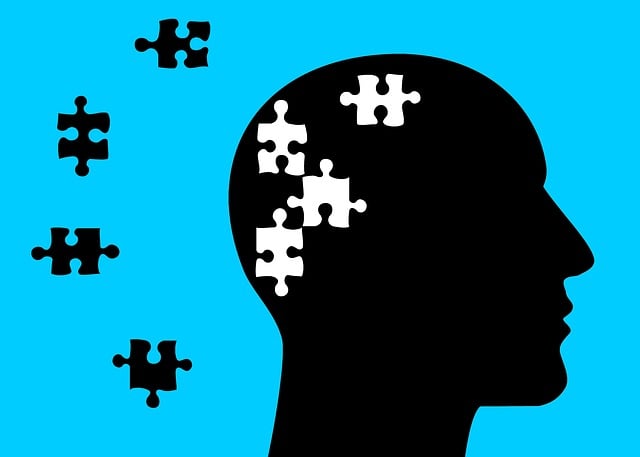Westminster Chronic Pain Therapy provides comprehensive solutions for managing chronic pain, lasting over 12 weeks, through a holistic approach integrating physiological and psychological methods. Their techniques include medication management, cognitive-behavioral therapy, stress management, community outreach, mindfulness, relaxation exercises, and creative activities like painting or gardening. These strategies empower individuals to cope with physical discomfort, stress, and emotions, enhancing overall well-being and resilience. The program's evidence-based practices, personalized coping skills, and risk management planning tools help patients overcome the challenges of prolonged pain experiences.
Coping skills development is a powerful tool in managing chronic pain, which affects millions worldwide. Understanding the impact of persistent pain on physical and mental well-being is the first step. This article explores how coping strategies can empower individuals to navigate their pain journey effectively. We delve into various techniques, including mindfulness and holistic therapies, offering practical insights. Westminster Chronic Pain Therapy provides a unique, comprehensive approach, combining traditional and alternative methods to cultivate resilience and improve quality of life for chronic pain sufferers.
- Understanding Chronic Pain and Its Impact
- The Role of Coping Skills in Managing Pain
- Strategies for Developing Effective Coping Skills
- Westminster Chronic Pain Therapy: A Holistic Approach to Skill Development
Understanding Chronic Pain and Its Impact

Chronic pain is a complex condition that can significantly impact an individual’s quality of life. It’s characterized by prolonged discomfort persisting beyond the typical healing time for an injury or illness, often defined as 12 weeks or more. Unlike acute pain, which serves as a warning signal to the body, chronic pain continues long after the initial threat has passed, leading to physical and emotional challenges. This persistent pain can result from various conditions such as arthritis, fibromyalgia, nerve damage, or even psychological factors.
Understanding chronic pain involves recognizing its multifaceted nature. It’s not just a physical sensation but also triggers intense emotions like frustration, anger, and sadness. In the context of Westminster Chronic Pain Therapy, professionals focus on comprehensive treatment approaches that address both the physiological and psychological aspects. Strategies may include medication management, cognitive-behavioral therapy, stress management workshops, and community outreach program implementations to enhance emotional healing processes. These integrated methods aim to empower individuals to take control of their pain, improve functioning, and enhance overall well-being.
The Role of Coping Skills in Managing Pain

Coping skills are essential tools for managing chronic pain, offering individuals a sense of control and empowerment. At Westminster Chronic Pain Therapy, we understand that pain can significantly impact one’s quality of life, but with the right coping strategies, it’s possible to navigate this challenge more effectively. These skills enable people to deal with physical discomfort, stress, and emotions associated with prolonged pain, fostering a sense of resilience.
Developing positive coping mechanisms goes beyond mere distraction or avoidance; it involves cultivating inner strength and adopting a proactive mindset. By focusing on techniques like mindfulness, relaxation exercises, and positive thinking, individuals can boost their confidence in managing pain. This approach encourages a more positive perception of one’s abilities, fostering the inner fortitude needed to persevere through difficult times.
Strategies for Developing Effective Coping Skills

Developing effective coping skills is a crucial aspect of managing chronic pain, and Westminster Chronic Pain Therapy offers valuable resources for this journey. One key strategy involves identifying personalized techniques that resonate with individuals. This could include activities such as meditation, deep breathing exercises, or engaging in hobbies like painting or gardening. Finding an outlet to express oneself can significantly enhance mental wellness and provide a sense of calm amidst challenging circumstances.
Additionally, integrating cognitive-behavioral techniques into daily routines can aid in mood management. Recognizing and challenging negative thought patterns allows individuals to reframe their perspectives. This proactive approach, coupled with regular practice, empowers people to navigate stressful situations more effectively. Engaging in these strategies not only complements the treatment process but also contributes to the overall production of a successful Mental Wellness Podcast Series, sharing valuable insights for those seeking support.
Westminster Chronic Pain Therapy: A Holistic Approach to Skill Development

Westminster Chronic Pain Therapy offers a comprehensive and holistic approach to coping skills development, catering to individuals living with chronic pain. This unique program recognizes that managing chronic pain is not solely a physical challenge but also profoundly impacts mental health and overall well-being. Therefore, it integrates various evidence-based practices to foster resilience building and emotional well-being promotion techniques.
By combining specialized medical treatments with therapeutic interventions, the therapy empowers patients to develop effective coping strategies tailored to their specific needs. This holistic approach goes beyond traditional pain management by addressing the psychological aspects of chronic pain, often overlooked in conventional care. It equips individuals with valuable tools for risk management planning for mental health professionals, enabling them to navigate and overcome the challenges associated with prolonged pain experiences.
Coping skills development is a powerful tool in managing chronic pain, as evidenced by Westminster Chronic Pain Therapy’s holistic approach. By understanding the impact of pain and leveraging effective coping strategies, individuals can navigate their journey with resilience. This comprehensive guide highlights the importance of personal growth and self-care, offering valuable insights into navigating the challenges of chronic pain. Embracing these skills can transform lives, allowing folks to find peace and maintain a sense of control amidst the hustle and bustle of daily life.














